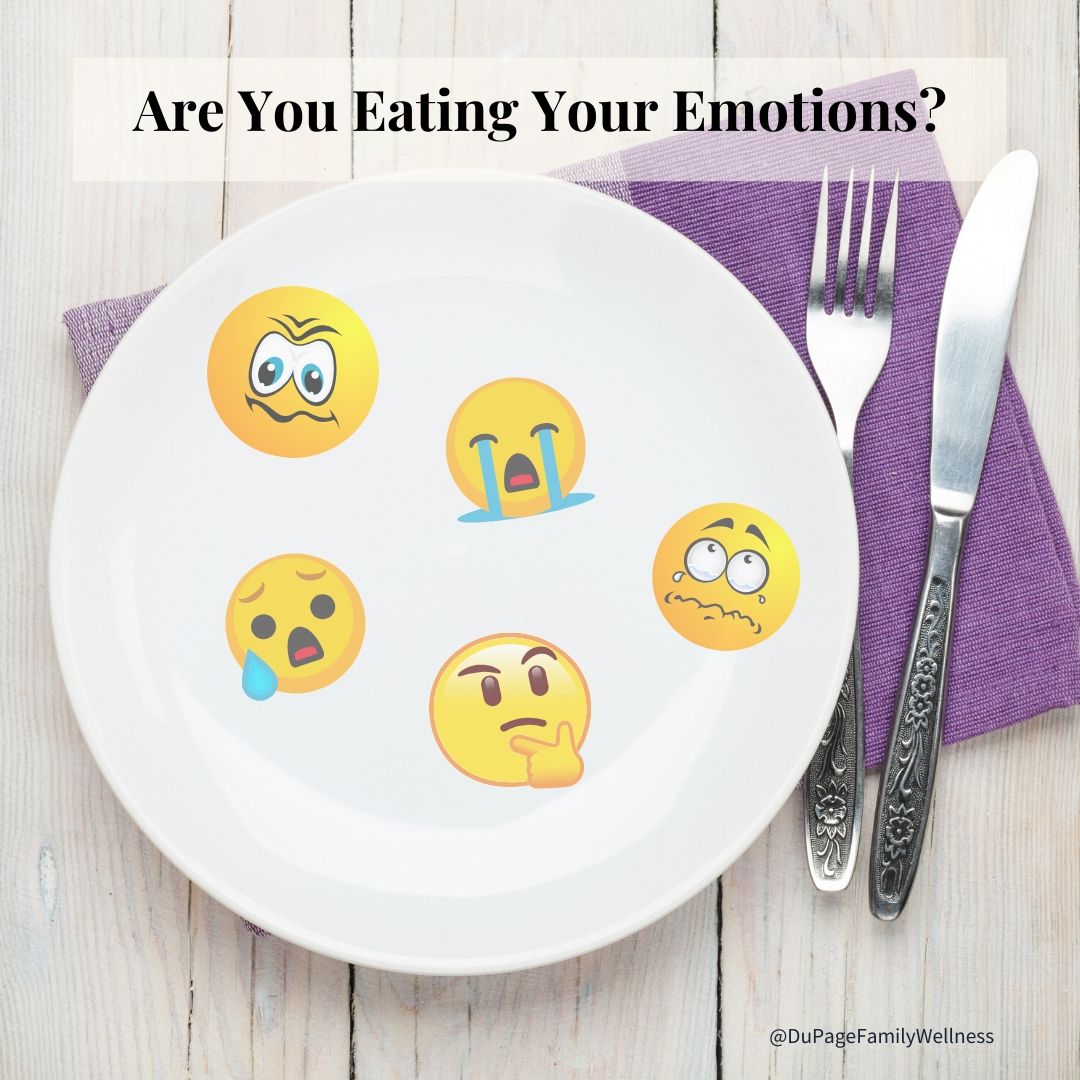 The state of our world has brought stress levels to an all time high. Illinois shelter in place orders were issued over 8 weeks ago, and our routines have been significantly impacted. As a result many people are dealing with more loneliness, boredom, and depression than they ever have before.
The state of our world has brought stress levels to an all time high. Illinois shelter in place orders were issued over 8 weeks ago, and our routines have been significantly impacted. As a result many people are dealing with more loneliness, boredom, and depression than they ever have before.
When we are faced with challenging times and strong emotions, it can be easy to turn to food for comfort. Eating in these moments may be an attempt to meet emotional needs rather than physical ones. Let’s take a look at emotional eating and what we can do to deal with it in these extreme times!
What is Emotional Eating?
When we feel sad, anxious, lonely, or angry it can be tempting to reach for food. When we reach for food to fill an emotional need rather than a physical one, it is called emotional eating.
Emotional eating is an attempt to self-soothe and has a way of numbing our feelings temporarily. Not only are we distracted by the sweet or salty tastes, but it can affect the chemicals in our body. When we consume sugar our brain produces a surge of dopamine. Since dopamine is known as the feel good hormone in the body, it brings us temporary relief from difficult feelings.
While soothing ourselves this way may feel better in the moment, emotional eating isn't the best way to handle our emotions. It doesn’t effectively deal with the underlying emotions and often leads to regret. Emotional eating may also create unintended health consequences if we indulge in it often. There are many better ways to soothe ourselves, but we must first recognize when we are attempting to eat our emotions.
Building Awareness
Since we often emotionally eat without realizing what we are doing it will be important to cultivate self-awareness. By checking in with yourself and knowing the clues, you can determine whether you are truly hungry.
When you go to eat, ask yourself, “How do I feel right now?”. Are you sad, lonely, angry, or bored? If you are experiencing a difficult emotion, ask yourself if you are really hungry or if you are trying to meet an emotional need?
Sometimes it can be hard to tell, but Mayo clinic has identified some clues you can look for to determine if you are really hungry. For instance, physical hunger generally comes on gradually after a period of not eating, while emotional hunger can come on suddenly even if you have eaten recently.
Physical hunger is felt in the stomach, while emotional hunger is felt in the mind. Generally while physical hunger gradually builds, there is a patience felt in meeting that need. On the other hand, emotional hunger tends to demand an immediate response. And the urgency of emotional hunger often feels like it can only be satisfied with a specific type of food.
An Intentional Choice
Once you know what kind of hunger you are dealing with, you can intentionally choose a response. There is no right choice for every situation, but it is wise to make the decision consciously.
If you find that you are trying to fill an emotional need with food, there are several alternatives. Instead of emotional eating, you may choose to…
- Distract yourself for a time (watch a show, read a book, etc.)
- Remove yourself from the situation (go for a walk, take a drive, leave the room, etc.)
- Reach out to a friend (a phone call, text message, etc.)
- Lean into the difficult emotion (let it wash over you knowing that it is temporary.)
- Comfort yourself through self-care (journaling, doing art, etc.)
- Rest or take a nap if you are tired.
- Exercise (even gentle movement can be beneficial.)
- Practice, meditation, mindfulness, or self-compassion exercises.
Emotional eating may be a tool you learned to keep you safe from emotions that felt too uncomfortable. But it is possible to learn other ways to deal with these difficult emotions, so that you do not have to rely on emotional eating any longer.
It is important to be gentle with yourself in this process. At first, you may still choose to eat that treat! But at least you will be aware of what you are doing. Celebrate that awareness, and the fact that you made the decision to eat that treat consciously. Eventually, you can develop self-soothing tools that you can call upon instead!
Dr. Jamie

